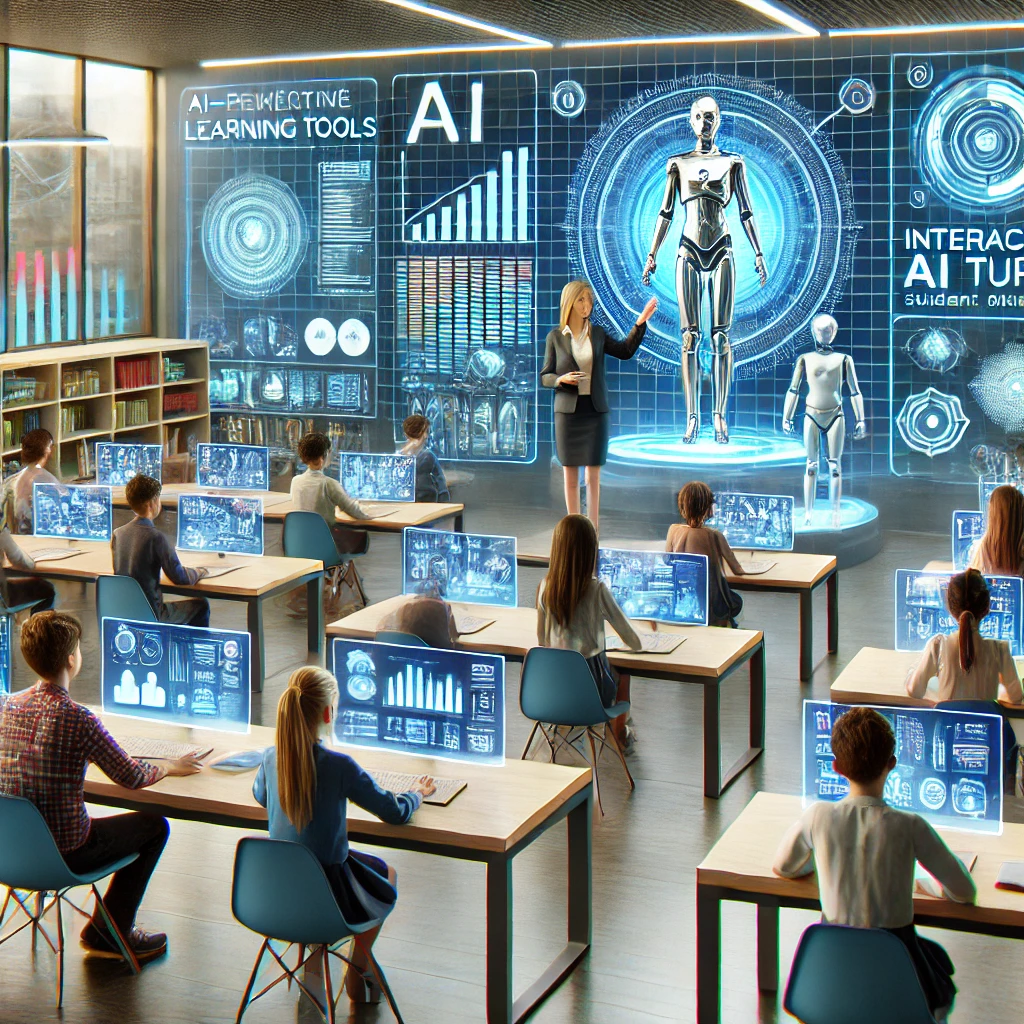Artificial intelligence (AI) is reshaping education by introducing smart technologies that enhance both learning and teaching experiences. From personalized learning paths to automated grading systems, AI is revolutionizing classrooms and online education alike. But how exactly is AI transforming education, and what challenges does it pose?
Understanding AI in Education
AI in education refers to the integration of machine learning, natural language processing, and data analytics to improve the learning process. AI-driven tools help educators automate repetitive tasks, provide real-time insights into student performance, and create more engaging learning environments.
Key Benefits of AI in Learning and Teaching
1. Personalized Learning Experiences
AI enables customized learning paths by analyzing student progress and adapting the content accordingly. Students receive recommendations tailored to their strengths and weaknesses, ensuring a more effective learning experience.
2. Enhanced Engagement and Interaction
AI-powered tools such as virtual tutors and chatbots provide interactive learning environments, keeping students engaged while helping them grasp complex concepts.
3. Intelligent Tutoring Systems
AI-based tutoring systems assist students in real-time, providing instant feedback and additional resources to strengthen their understanding of a subject.
4. Automated Administrative Tasks
Teachers save time by using AI for attendance tracking, scheduling, and grading, allowing them to focus on more valuable teaching activities.
AI-Powered Personalized Learning
AI-driven adaptive learning platforms adjust lessons according to individual learning speeds. These platforms use predictive analytics to determine areas where students need improvement and modify the curriculum accordingly.
Smart Tutoring and AI Assistants
AI chatbots and virtual tutors offer on-demand assistance, answering student queries and helping with assignments. They also provide teachers with insights into student performance, helping educators tailor their teaching methods.
AI in Grading and Assessments
Automated grading systems help teachers assess student work efficiently. AI can analyze written responses, detect patterns in errors, and provide constructive feedback, reducing the workload for educators.
AI and Gamification in Education
AI-driven gamification techniques make learning more engaging. Interactive quizzes, AI-powered simulations, and game-based learning applications motivate students to actively participate in their education.
Challenges of Implementing AI in Education
Despite its advantages, AI implementation faces several obstacles:
- High Costs: AI-based solutions can be expensive, making them inaccessible for many institutions.
- Privacy Concerns: AI collects large amounts of student data, raising ethical questions about security and privacy.
- Teacher Training: Educators require proper training to effectively use AI tools in the classroom.
AI for Teachers: Enhancing Efficiency
AI assists teachers by automating lesson planning, generating personalized resources, and analyzing student performance. These insights enable educators to create more effective teaching strategies.
Case Studies: AI Success Stories in Education
Countries like China and the U.S. have successfully integrated AI in classrooms. AI-powered platforms such as Coursera and Duolingo provide students with personalized learning experiences, demonstrating AI’s potential in education.
The Future of AI in Learning and Teaching
As AI technology advances, we can expect more sophisticated applications, such as virtual reality classrooms and AI-driven mentorship programs. The future of education will likely include a hybrid model where AI complements traditional teaching methods.
Conclusion
AI is transforming education by providing innovative solutions for both students and teachers. While challenges remain, ethical AI implementation and continuous improvements will ensure that AI becomes an invaluable asset in learning and teaching.
FAQs
AI customizes lesson plans based on student performance, ensuring tailored education experiences.
No, AI enhances teaching but cannot replace human educators’ creativity and emotional intelligence.
Data privacy, algorithmic bias, and accessibility are primary concerns when implementing AI in schools.
AI automates grading, analyzes written responses, and provides feedback to students.
High costs, lack of teacher training, and data privacy concerns are significant challenges.



